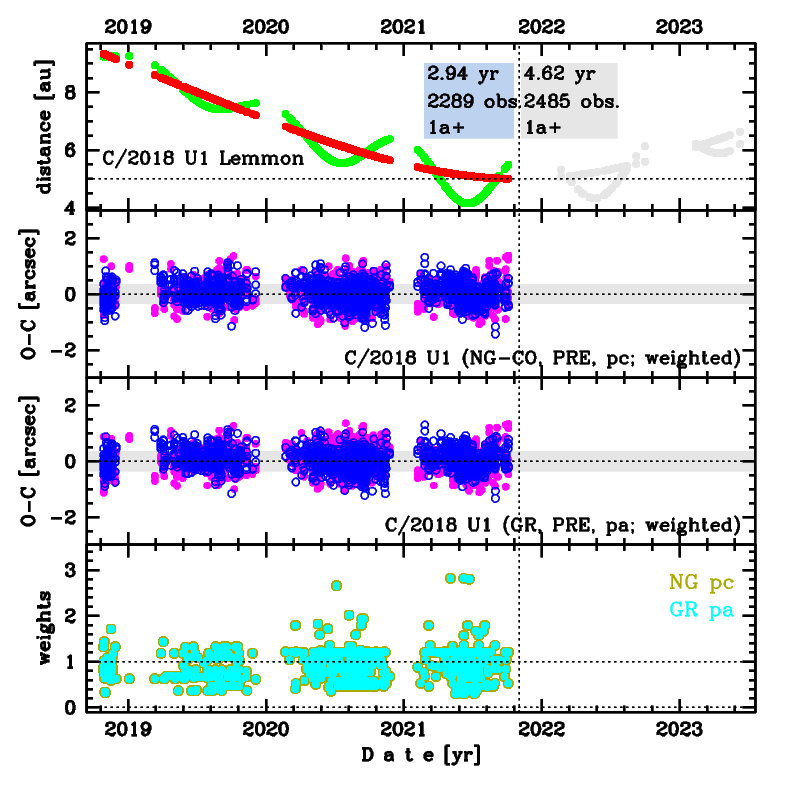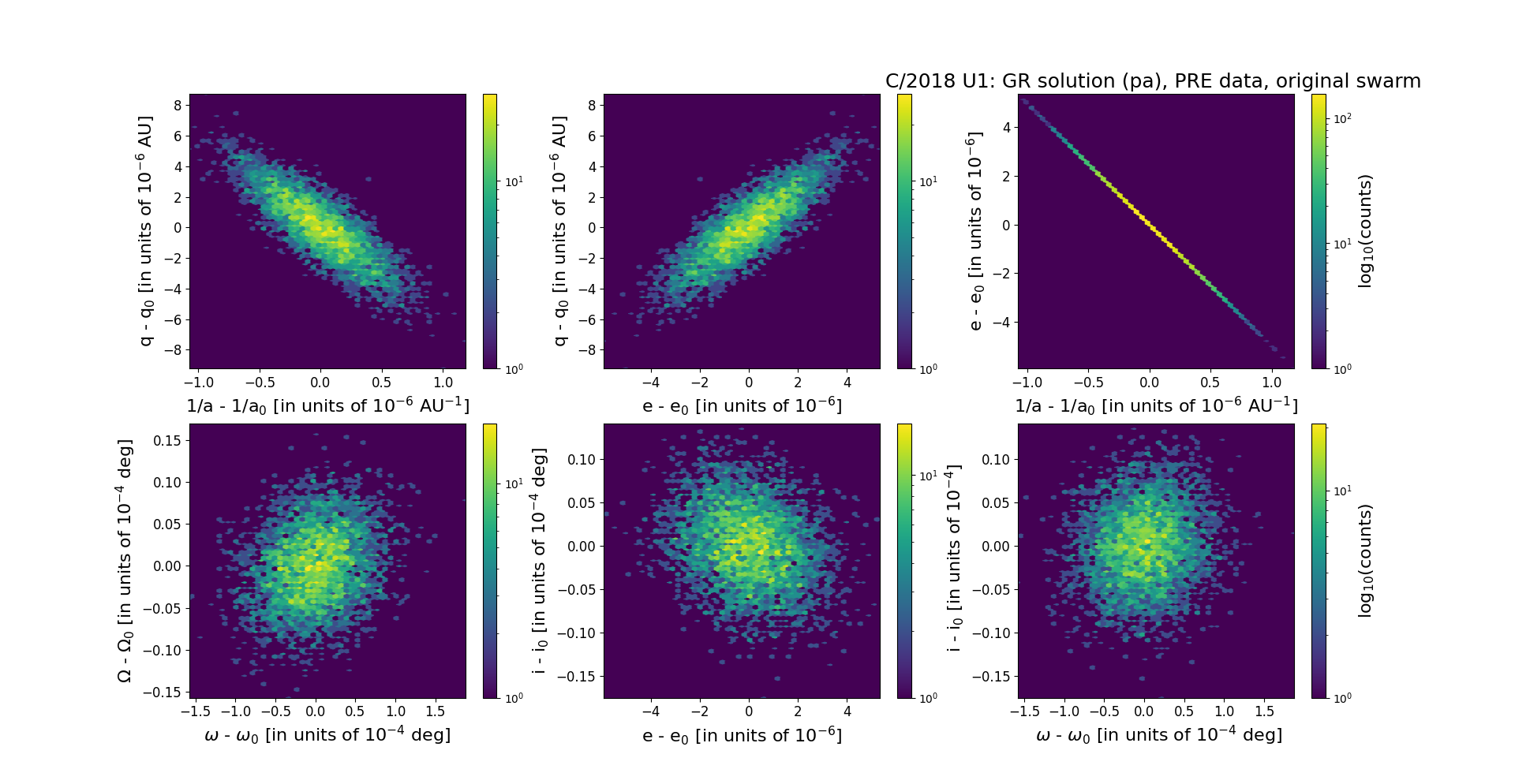C/2018 U1 Lemmon
more info
Comet C/2018 U1 was discovered on 27 October 2019, almost four years before its perihelion passage, and was observed until the mid-2023 (as in February 2025).
Comet had its closest approach to the Earth on 18 June 2021 (4.14 au), about 4.5 months before its perihelion passage.
The preferred NG-solution given here is based on data spanning over 4.62 yr in a range of heliocentric distances 9.33 au – 5.00 au (perihelion) – 6.64 au
This Oort spike comet suffers moderate planetary perturbations during its passage through the planetary system that lead to a significantly more tight future orbit (semimajor axis of about 3,800 au).
Comet had its closest approach to the Earth on 18 June 2021 (4.14 au), about 4.5 months before its perihelion passage.
The preferred NG-solution given here is based on data spanning over 4.62 yr in a range of heliocentric distances 9.33 au – 5.00 au (perihelion) – 6.64 au
This Oort spike comet suffers moderate planetary perturbations during its passage through the planetary system that lead to a significantly more tight future orbit (semimajor axis of about 3,800 au).
| solution description | ||
|---|---|---|
| number of observations | 2289 | |
| data interval | 2018 10 27 – 2021 10 04 | |
| data arc selection | data generally limited to pre-perihelion (PRE) | |
| range of heliocentric distances | 9.33 au – 5au | |
| detectability of NG effects in the comet's motion | comet with determinable NG~orbit | |
| type of model of motion | GR - gravitational orbit | |
| data weighting | YES | |
| number of residuals | 4524 | |
| RMS [arcseconds] | 0.36 | |
| orbit quality class | 1a+ | |
| orbital elements (barycentric ecliptic J2000) | ||
|---|---|---|
| Epoch | 1715 12 17 | |
| perihelion date | 2021 11 02.19591479 | ± 0.00029644 |
| perihelion distance [au] | 4.98827084 | ± 0.00000204 |
| eccentricity | 0.99967032 | ± 0.00000153 |
| argument of perihelion [°] | 180.419398 | ± 0.000040 |
| ascending node [°] | 75.386772 | ± 0.000004 |
| inclination [°] | 108.296358 | ± 0.000004 |
| reciprocal semi-major axis [10-6 au-1] | 66.09 | ± 0.31 |
| file containing 5001 VCs swarm |
|---|
| 2018u1pa.bmi |

Upper panel: Time distribution of positional observations with corresponding heliocentric (red curve) and geocentric (green curve) distance at which they were taken. The horizontal dotted line shows the perihelion distance for a given comet whereas vertical dotted line — the moment of perihelion passage.
Middle panel(s): O-C diagram for a given solution (sometimes in comparison to another solution available in CODE), where residuals in right ascension are shown using magenta dots and in declination by blue open circles.
Lowest panel: Relative weights for a given data set(s).
Middle panel(s): O-C diagram for a given solution (sometimes in comparison to another solution available in CODE), where residuals in right ascension are shown using magenta dots and in declination by blue open circles.
Lowest panel: Relative weights for a given data set(s).
